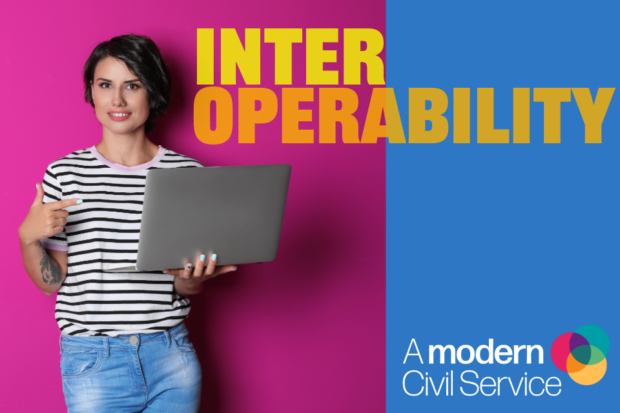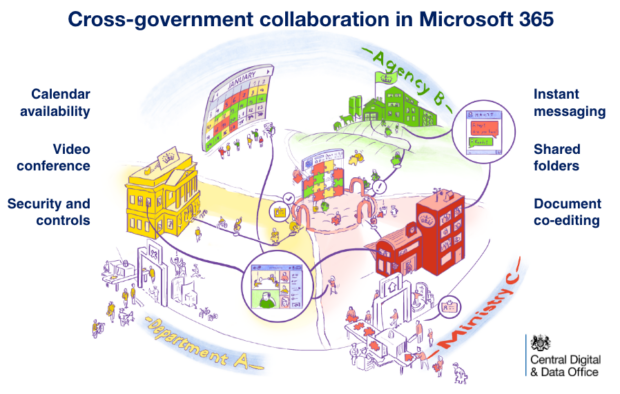
It's an odd word with a huge impact and a key part of building A Modern Civil Service. Interoperability means making it easier for different departments to work together, unlocking potential and getting rid of things that slow the job down.
Effective information sharing is essential to keep Government services running smoothly, and interoperability is at the heart of this. But what exactly is interoperability, and how does it affect your day-to-day working and personal life?
Simply put, having the tools and systems in place to let us all talk to each other and share information quickly will make us a more efficient civil service. Individually, this means making daily working as friction-free as possible.
The interoperability portfolio has four elements that will help civil servants. These are:
- One Data: Government People Group are building the ability to collect, analyse and draw insight from high quality data to support planning and management.
- One Estate: The Government Property Agency is aiming to deliver secure access to workplaces and facilities, and create better working environments.
- One IT: Creating a joined up approach to how the Civil Service uses common tools to make collaboration easier.
- One HR: The way civil servants develop their skills is being transformed through the Government Skills Campus where skills will be recorded and a simpler way to access the learning on offer will be provided.

Collectively, this portfolio will allow civil servants to:
- Work more efficiently
- Enhance their experiences when using technology, gathering and analysing data for strategic planning and management, engaging in training, learning and development
- Access secure workplaces and facilities
- Use the same technology, no matter where you work, such as Microsoft 365
One example of interoperability in action is how One IT has supported government organisations to align how they configure their Microsoft 365 tools. This can enable civil servants to collaborate consistently and securely with colleagues in other organisations. How is this relevant to interoperability? Well, this allows civil servants to:
- Instant message colleagues in other organisations, quickly and easily sharing information
- Share and co-edit documents through URL links instead of sending multiple email attachments
- View when colleagues are free or busy, saving time arranging meetings, as well as seeing when not to interrupt someone's day!
- A consistent experience when hosting or joining video conferences with colleagues in other organisations
- Provide access to secure collaboration sites to those who need it
- All with consistent security, monitoring and controls, appropriate for working with OFFICIAL information
To learn more about interoperability, you can visit the Interoperability page.
2 comments
Comment by Oliver Barrett posted on
Great to see this happening. Makes a huge amount of sense. Great work.
Comment by Caroline Featherstone posted on
Fantastic to see this laid out so clearly with a clear intent to make this happen. So many economies of scale to be made by working as 'one' as well as learning from one another, working collaboratively etc. - the list goes on!